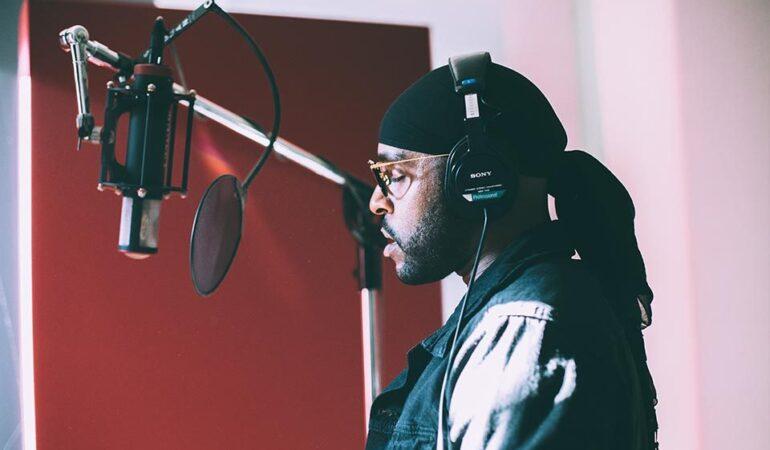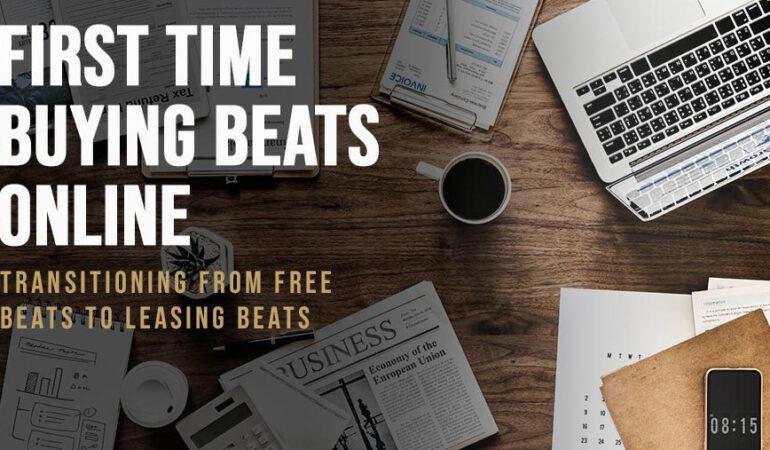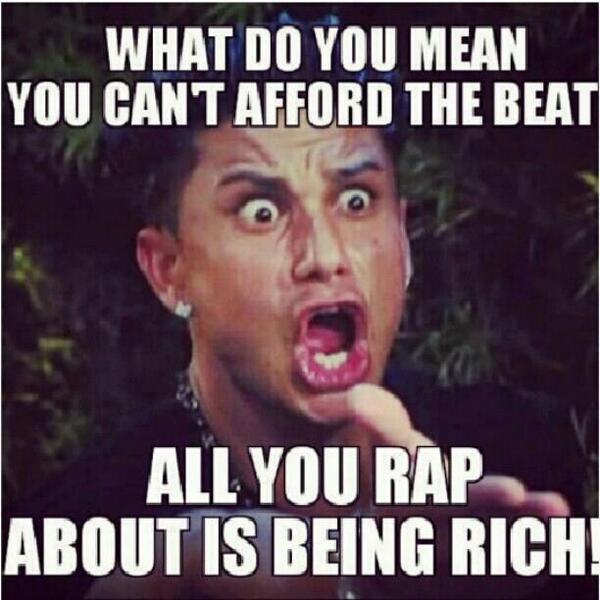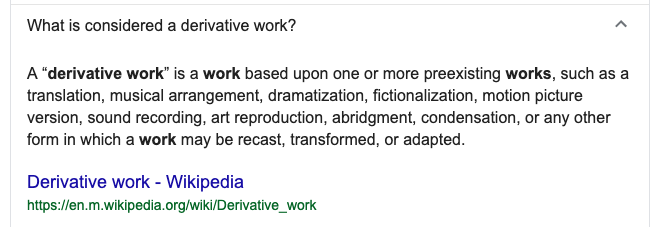Getting started as a Recording Artist – The Checklist
So, you’re getting started as a Recording Artist?
Or maybe you already started out and just want to check and see if you’re on the right track. – All good with me!
Allow me to help you out getting started the right way.
First, let’s talk about being an Artist, shall we?
What is it like, being a Recording Artist?
It’s funny, though! If you ask Google this question, it comes up with the following answer:

‘Intermittent periods of unemployment’ – “I guess that’s only positive when you have a passive source of income, right?”
If I would ask you what you think it’s like being a recording artist. One of the first things that come to mind probably would be about that Luxury Lifestyle.
The money, the fame, the fortune.
Fast cars, million-dollar mansions, and sold-out shows in stadiums filled with 50,000 people.
And that’s perfectly normal since that is the picture painted by the popular artists who are your motivation and inspiration.
But, not many of these artists tell you about their daily struggles. The pressure of delivering quality music album after album.
The hard work they’ve put in over the years. And the long road they’ve traveled to end up where they are today.
Being an established artist comes with a high-level of stress and you’re constantly working under pressure.
Okay, hold-up!
I’m not trying to demotivate you. I’m just saying that being an artist comes with certain responsibilities and continuously putting in, effort, and hard work.
“Are you ready for this?”
If you’re reading this, you probably don’t have a personal manager to look after you. Nor are you backed by a (major) label that handles your funding.
You’re getting started as a recording artist – Independently.
Everything you need to get started as a Recording Artist
Basically, you’re flying solo towards the Land of Money, Fame and Fortune. (And don’t forget the intermittent periods of unemployment lol)
While there’s still a long road ahead of you, independently promoting yourself as an artist is not really that hard with all of the resources that are available today.
The Internet, Social Media, DIY Guides on how to promote your music. YouTube and Soundcloud. Just to name a few.
Before you even start promoting yourself and your music, you want all the fundamentals to be in place accordingly.
That’s where my checklist comes in.
You’ll find a detailed breakdown of this list after the next paragraph.
Most common mistakes made by artists
Here are 5 most common mistakes made by artists that I see every day:
- No links to (all) social media sites
- No biography
- Missing contact information
- Incomplete profile pages on YouTube, SoundCloud and/or other Social Media platforms
- No ‘call-to-action’ on profile pages
1. No links to (all) social media sites
Artists send over their music to me all the time. Mostly, SoundCloud or YouTube links. Whenever I hear something that I like, I want to hear more tracks by that artist and find out more about them.
Or at least stay updated about their activities.
Makes sense, right?
Well, the funny thing is, more than half of the artists I check out don’t have links to (all) their social media sites on their SoundCloud or YouTube page.
2. No short or long biography about the artist
I believe over 80% of these artists don’t have their real name shown in a (short) biography that tells who the artist is or where he or she is located.
3. Missing contact information
Yes, contact information! A lot of artists don’t show a contact email for bookings or business inquiries.
How am I supposed to reach out to you if I want to work with you!?
4. Incomplete profile pages
When you register to an online platform, they ask you all these questions upon signing up.
Like;
- Name / Artist name?
- City, State and Country?
- Official website?
- Social Media links?
- Contact information?
Even if these fields aren’t required to fill in before signing up, you should always do.
5. No ‘call-to-action’ on profile pages
‘Call-to-action’ sentences are SUPER important for your profile pages. This could be anything like;
– “Follow me on Instagram to watch my studio sessions”
– “LIKE my Facebook page and stay updated about my new releases”
– “New single OUT NOW! [link to Spotify]”
Sometimes people just need that extra push to make them follow you or give you their email for a free download link to your music.
Breaking down the checklist
1. Biography
There are so many reasons why a well-written biography is super important for your (upcoming) music career. You’re not writing a biography (only) for your future fans and followers. More importantly, you’re writing it for Music Supervisors, Record Label A&R’s, Media Agents, Booking Agents, Event Promoters etc.
A biography is just a small part of a much bigger picture.
A good biography is simply a marketing/sales tool. (rather than a chance to tell your life story)
3 types of biographies
I always say there are 3 types of biographies;
– “(1) The short version, (2) the super short version and (3) the full version” –
The short version: Basically the first paragraph of your full version.
The super short version: Something like; “Joe Johnson – Independent singer/songwriter and recording artist from Los Angeles, CA”
The version that you would use for your Instagram or Twitter profile. Or any other platform where you are limited to a maximum amount of characters.
The full version: See next paragraph.
Writing your biography
When you’re getting started as a recording artist, you probably don’t have the funds to hire a professional to write a biography for you.
I’ll show you how you can set up a good biography yourself.
First lesson – “Structure is everything!”
Like I mentioned earlier, there are 3 types of biographies and the short version is basically the first paragraph of your full version.
So, you want to make sure that your first paragraph includes a summary of all the important parts that are explained in more detail further in your biography.
The important parts and things you want to highlight in your first and second paragraph are:
- Full Name + Artist name + Type of artist
- Location
- Recent releases
- Accomplishments
- Quotes
- Plays, downloads on recent releases (if it’s worth mentioning)
- Follower count on Social Media (if it’s worth mentioning)
- Upcoming releases
- Collaborations (if it’s worth mentioning)
I have some pre-written examples for you. But first, let me tell you a little secret…
When it comes to biographies, most people really don’t care what age you started doing music. Or how your mum and dad were both musicians (unless they are big names in the music industry). They don’t care about why you started doing music or what your personal beliefs or life goals are.
In fact, most of the readers don’t even make it to 300 words before they skip the page.
That’s why you want to write everything worth mentioning in your first paragraphs.
Examples of how to write a Biography
Example 1:
Joe Johnson is an independent R&B singer, songwriter and recording artist from Los Angeles, CA. His latest EP, titled “On My Way To The Top” was downloaded over 3.500 times and has been featured on music blogs like WSHH and ThisIsRnB, who compared his sound to artists like Trey Songz and Chris Brown.
Now, with over 15.000 plays on Soundcloud and over 35.000 followers on Instagram and Twitter, Joe is working on his second project “I’m Here To Get Big” which is set to release in July 2017. On this next project, he collaborates with artists like Lil Yachty and features tracks produced by Music Producers Robin Wesley and MikeWillMadeIt.
Joe was born on November 24th, 1991 in Atlanta and moved with his parents to Los Angeles when he was 6-years old. Coming from a family of music…
Example 2:
Joe Johnson is an independent R&B singer, songwriter and recording artist from Los Angeles, CA. He is currently working on his first EP, titled “On My Way To The Top,” which is set to release in July 2017. Joe’s style of music is often compared to artists like Trey Songz and Chris brown. You can hear the resemblance in his latest tracks on SoundCloud, which have already got a significant amount of plays for an artist like Joe Johnson.
Determined to break into the Music Industry, Joe is working hard on his next release. As well as building up his fan base and followers on Social Media. He hopes to sign a record deal one day.
Joe grew up in Atlanta, living with his mum who was a single parent. At the age of twelve, he discovered his love for music…
When you read over these examples. Do you notice how, for example, Event Promoters or Booking Agents can simply copy and paste the first and second paragraph and post that on their website when you’re having a show at one of their events?
Or, how the first paragraph might convince a Record Label A&R to look further into you and check out more of your work?
More importantly; Do you notice how ‘boring’ the third paragraph gets?
Well, that’s exactly the point where 90% of the readers will skip the page.
Just a few more tips about writing a biography
- Keep it up-to-date. New developments or goals accomplished? – “Put it in there!”
- The ‘boring parts’ might be interesting for your fans in the future. It’s okay to write it of course.
- Don’t make the full version too long. Keep it fun, alright?
- When you’re publishing the biography on your website, use hyperlinks in the text so that the reader can easily click on it.
2. Personal Website
I’m a huge fan of artist websites. It just tells that they are serious about being or becoming a professional recording artist.
While setting up a personal website requires certain expertise, I would strongly advise to let someone build it for you. (or build one yourself)
If it’s not at all possible for you, there are always alternatives to find online. Take Bandcamp for example.
The benefits of a personal website
On your personal website, you can show tour dates, sell merchandise (when you’re ready), collect emails, create pre-order options for an upcoming release and more.
You can also upload a bunch of high-quality press photos that promoters and booking agents can download from the site. To print a flyer for the event you’re performing at, for example.
What I find most important about a personal website is that you control everything yourself. It’s rather unlikely, but if YouTube, Soundcloud and/or iTunes would disappear from the web for some reason, you can always fall back on your own website and re-direct your fans there.
All the content you need to add to your website is listed in the checklist.
3. Social Media
Every professional recording artist has healthy (growing) social channels. Social channels are available for everyone and everyone is ON social channels 24/7 too.
The best way to market yourself a recording artist, if you ask me.
Then again, setting up a social channel like Instagram or Facebook should be done with care.
We’ve already talked about short and super short biographies. Now, this is the time to use it!
If you read the paragraph of “Most common mistakes made by artists” you already learned a few things about how to set it up properly. ( I hope so 
Just breaking it down for you one more time.
All the information that needs to be on your Social Channels
- Your Artist name
- Your short or super-short biography
- Link to your website or at least to a site where they can listen to your music
- A Call-To-Action (Follow me on my Journey!)
- Contact information (for bookings and business inquiries contact joe@joemusic.com)
4. Music Channels
SoundCloud and YouTube are most common and an absolute requirement these days. There might be other platforms useful as well. Of course, you can add those to the list too. Whatever works for you!
For both SoundCloud and YouTube, you can use the same things listed for Social Channels in the previous paragraph.
Just add 2 more:
- Links to ALL social media accounts
- Different Call-To-Action
For example; You can put something like “Download my new single for FREE at [url to download page]” in the description of your video on YouTube or track on Soundcloud.
5. Network & Contacts
I’m near close to writing this whole section in all capital letters and bold print.
Seriously, I’m still so surprised that so many artists aren’t working on networking, finding contacts, and building relationships with people who can make a difference in their music career.
Network and contacts are important if you want your music to be heard by the world. I can’t emphasize this enough.
Once you’ve got a list of contacts together, you’ll only have to submit your new releases to them and wait till (or if) they publish it on their sites.
And when they do .. – BOOM! 
If you’re still wondering what I’m talking about. Proceed to the next chapter.
YouTube Promoters and Music Blogs
I decided to write entire articles about topics such as YouTube Music Promoters and Music Blogs.
Also, luckily for you, I already took the courtesy of setting up a list of contacts for both of them.
Check out a separate blog post about YouTube promotes and music blogs that you can pitch to!
Music Supervisors
There might be some work in this for you, but it’s well worth it.
With a little searching around on the web, you should be able to find a few contact emails from music supervisors.
These are people where you can submit songs to and they might pick your song to get played in TV-Shows, movies or advertisements.
There’s some good money in this and it’s always good to have a few Music Supervisors in your network.
On a side note: If you’re really just starting out as a recording artist, don’t be too quick to submit your music to Music Supervisors. Your music has to be on a certain level before you decide to submit it. Saving these contacts to your list is important, but does not necessarily mean you have to exhaust all your resources right away. You might scare them away. Forever.
Facebook Groups
Who isn’t on Facebook these days?
Step 1: Type in “R&B Music” in Facebook’s search bar. (or any other genre related to your music)
Step 2: Search for groups
Step 3: Pick out the largest and most active groups and join them
Now, the next time you’re releasing new music, Kindly ask the moderator of this group if he would be okay with you sharing your music up there.
There are groups on Facebook with 10,000’s of people. All potential fans of your music.
“Ain’t that a nice audience to share your music with?”
Sign up with CDBaby or TuneCore
I already told you. You’re flying solo towards The Land of Money, Fame and Fortune.
That means that you’re basically managing yourself too. And you’re responsible for the business side as well.
We’re living in a digital world right now and recording artists no longer have to outsource distribution management and financial management.
In fact, you can do everything yourself.
Do not make the mistake of thinking you’re not ready to sign-up for these services yet.
If you are creating original music right now, there are several ways to make money from it. You probably don’t even know about it.
Without going into detail about this myself, I want you to check out the following links and read what they are all about.
> CDBaby
> TuneCore
Ultimately, you’ll have to join one of them.
Sign up with a PRO (Performing Rights Organization)
A Performing Rights Organization basically collects and pays out Royalties.
Another subject that I would rather explain to you by directing you to their websites.
Ultimately, you’ll have to join on of them.
> ASCAP
> BMI
There are a few more performing rights organisations in the U.S. and if you’re not from the U.S. your country might have his own PRO. You can find a list of all the PRO’s in the world here.
The importance of building an Email List
Last, but definitely not least.
The Mailing List.
I can tell you right away. Whatever business, industry or niche you’re in, an email list is or will become one of your most powerful marketing tools.
You can’t start soon enough with building that list.
Compared to Social Media, emails are far more personal. Several studies have shown that conversion from emails is at least 6 times higher compared to social media posts.
Simply sign up with a mailing list provider like Mailchimp or AWeber. Or you can just collect the emails in a personal file for future usage.
Just make sure you save the addresses.
Good luck!




 ”
”



